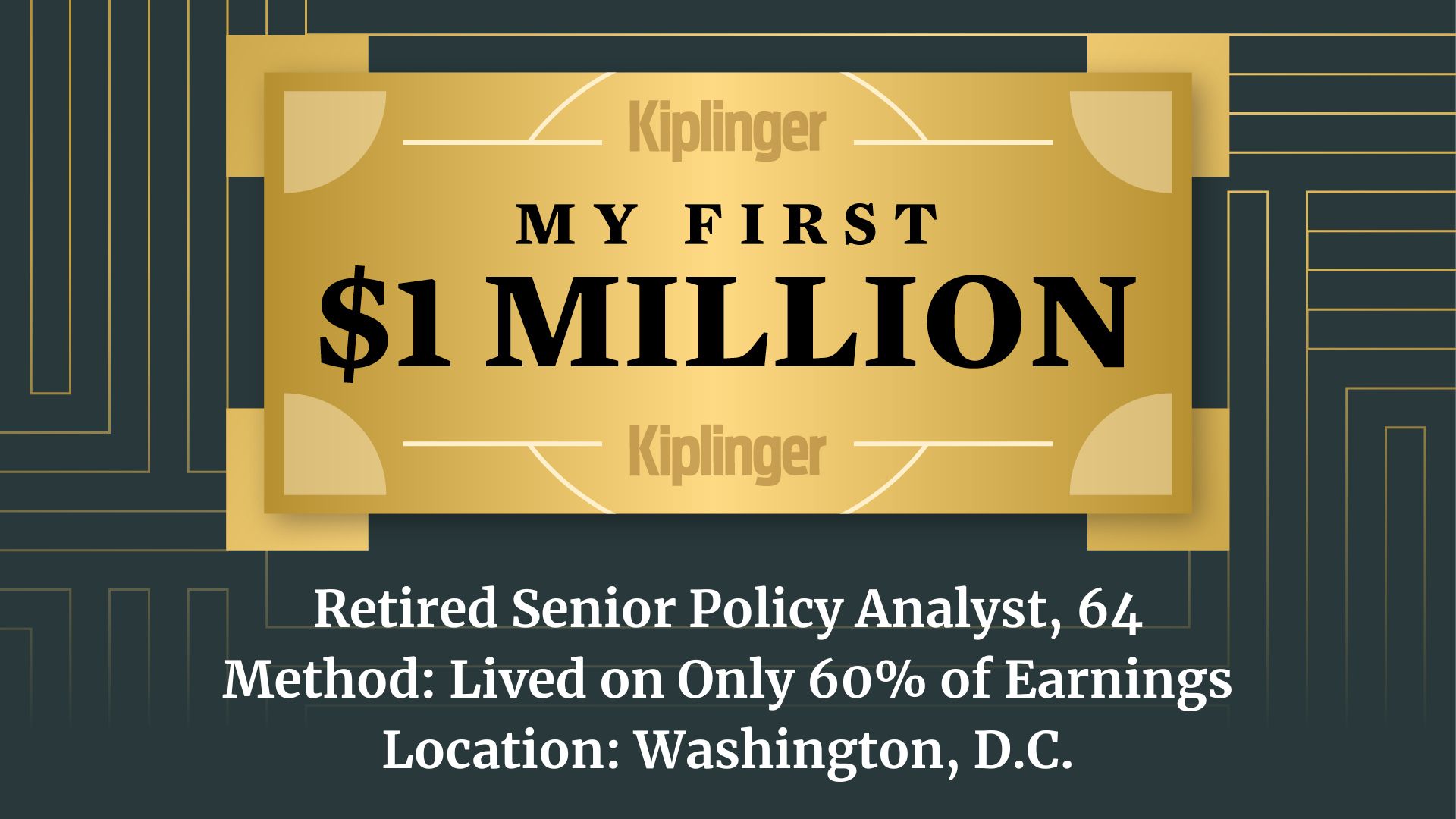How to Save on Booking a Cruise
Kiplinger editors have found three methods for saving money on cruises.

Profit and prosper with the best of Kiplinger's advice on investing, taxes, retirement, personal finance and much more. Delivered daily. Enter your email in the box and click Sign Me Up.
You are now subscribed
Your newsletter sign-up was successful
Want to add more newsletters?
We may get compensation if you visit partner links on our site. We may not cover every available offer. Our relationship with advertisers may impact how an offer is presented on our website. However, our selection of products is made independently of our relationship to advertisers. The content on this page is accurate as of the posting date; however, some of the offers mentioned may have expired.
Booking a cruise for a family vacation or romantic getaway? Cruises can be a great way for extended families to enjoy time together, as they offer activities for kids, adults and seniors.
If you book a cruise strategically with travel rewards credit cards or cash-back cards, you can save money and get extra perks for your trip.
Kiplinger editors have found three methods for saving money on cruises.
From just $107.88 $24.99 for Kiplinger Personal Finance
Become a smarter, better informed investor. Subscribe from just $107.88 $24.99, plus get up to 4 Special Issues

Sign up for Kiplinger’s Free Newsletters
Profit and prosper with the best of expert advice on investing, taxes, retirement, personal finance and more - straight to your e-mail.
Profit and prosper with the best of expert advice - straight to your e-mail.
1. Book a cruise with rewards credit cards

If you're a veteran cruiser, you know that booking a cruise can be complicated, especially if you're trying to earn or redeem credit card rewards at the same time.
"The best strategy is to keep it simple and flexible," says Ted Rossman of Creditcards.com. Rossman recommends avoiding cruise-branded credit cards, which typically deliver meager rewards and lock you into one cruise line. Instead, he advises using a flexible travel rewards card or a cash-back card.
Booking with a travel rewards credit card can help you get travel-related perks, such as travel assistance and no foreign transaction fees. Here are some of Rossman's favorite travel cards for maximizing the points you earn when booking a cruise:
- The Chase Sapphire Preferred® Card earns five points for every dollar booked through its travel portal. Instead of booking directly through the Chase travel portal, you must call a Chase cruise specialist at 1-866-331-0773. Chase works with almost every cruise line except Disney and will match the price of any package you find on a partner cruise website. Chase offers 60,000 bonus points after customers spend $5,000 on purchases in the first three months. The annual fee is $95, and interest rates are 19.99% to 28.24% variable APR. The card also offers 5 points on travel purchased through Chase Travel and 2 points on other travel purchases as well as a complimentary DashPass Subscription for both DoorDash and Caviar for $0 delivery fee for a minimum of one year after activation.
- The Capital One Venture Rewards Credit Card earns 5X miles on hotels, vacation rentals and rental cars booked through Capital One Travel. The annual fee is $95, and comes with a 19.49% - 28.49% (variable) interest rate. New cardholders enjoy a limited-time offer of $250 to use on Capital One Travel in your first cardholder year, plus earn 75,000 bonus miles once you spend $4,000 on purchases within the first 3 months from account opening - that’s equal to $1,000 in travel. You can also book a cruise without using the Capital One Travel platform and get reimbursed at the rate of one cent per mile. Need more details? Read Capital One Venture Rewards Credit Card — $1,250 Bonus Offer.
If the thought of managing points or miles for booking and redeeming travel sounds like a hassle, keep it simple with one of the best cash-back credit cards. One of the best options for travelers is the Citi Double Cash® Credit Card. This no-fee card offers a nice sign-up bonus: Earn $200 cash back if you spend $1,500 on purchases in the first six months.
Earn 5% total cash back on hotel and car rentals booked on the Citi Travell® portal. Get a total of 2% cash back on everything you buy: 1% when you make a purchase and an additional 1% when you pay the bill. Rewards are tracked as Citi ThankYou points, which you can exchange at a rate of 1 cent apiece for a statement credit, direct deposit into your bank account or a check. Rates are 18.24% to 28.24% variable APR.
2. Use a Costco or BJ's membership
Costco
If you're a fan of the perks a Costco Membership can offer, check out the company's travel discounts.
Costco cruise packages, especially those under the store's Kirkland brand, are some of the cheapest on the market. Costco also partners with Disney and other major cruise lines.
An entry-level Costco membership costs $65 per year.
BJ's
BJ's Wholesale Club members receive up to a $500 BJ gift card when they book a cruise through the company's travel portal. BJ's offers discounts on major cruise lines, as well as everything you might need to get to the departure dock, such as airfare, rental cars and hotels.
The lowest membership tier costs $55 per year.
Both Costco and BJ's provide last-minute deals on cruises, some of which are incredibly cheap.
For example, Costco is offering a Caribbean and Bahamas 7-night Star of the Seas cruise starting at $1,485 per person (including taxes and fees).
BJ's touts a four-night Carnival Cruise to the Bahamas and Florida starting at $244 per person (interior rooms only).
3. Use travel agents
Remember travel agents? The internet decimated the industry with such sites as Expedia, but it has adapted. Using a travel agent to plan a trip can provide clients with real value and save on time and hassle. This is especially true when booking a cruise, which is exceptionally complicated.
A good travel agent can help you find a great deal, understand pricing tiers and perks and help keep track of multiple payment deadlines. Best yet, you don't pay the travel agent any direct fees — those are typically covered by cruise lines commissions.
To find a reputable agent, ask family and friends who cruise if they have recommendations. Vet agencies by reading reviews from the Better Business Bureau, and consider looking for an accredited agent, such as through the American Society of Travel Agents’ consumer site, Travel Sense.
Other considerations
The cruise industry is not always pretty — think of how often norovirus outbreaks put passengers at risk and ruined vacations in the past few years.
Cruises are also very polluting, with a typical ship having a carbon footprint of 12,000 cars. Surprisingly, cruise ships emit more carbon dioxide per passenger than airplanes, and they discharge billions of gallons of toxic waste into the ocean.
If environmental issues are important to you, look for a cruise line with solid policies and practices.
For a sense of how clean and sanitary a cruise ship or cruise line is, search the Center for Disease Control and Prevention's (CDC) Advanced Cruiseship Inspection Search tool.
As an independent publication dedicated to helping you make the most of your money, the article above is our view and is not the opinion of any entity mentioned such as a card issuer, hotel, airline, etc. Similarly, the content has not been reviewed or endorsed by any of those entities.
Read More
Profit and prosper with the best of Kiplinger's advice on investing, taxes, retirement, personal finance and much more. Delivered daily. Enter your email in the box and click Sign Me Up.

Ellen writes and edits retirement stories. She joined Kiplinger in 2021 as an investment and personal finance writer, focusing on retirement, credit cards and related topics. She worked in the mutual fund industry for 15 years as a manager and sustainability analyst at Calvert Investments. She earned a master’s from U.C. Berkeley in international relations and Latin America and a B.A. from Haverford College.
-
 4 High-End Experiences Worth the Splurge After 50
4 High-End Experiences Worth the Splurge After 50These curated date ideas provide the perfect backdrop for couples ready to enjoy the very best that the world has to offer.
-
 Health Care Stocks Have Sagged. Can You Bet on a Recovery?
Health Care Stocks Have Sagged. Can You Bet on a Recovery?The flagging health care sector has perked up a bit lately. Is it time to invest?
-
 Costco's Auto Program: Can Membership Pricing Really Save You Money on a Car?
Costco's Auto Program: Can Membership Pricing Really Save You Money on a Car?Costco's Auto Program can simplify the car-buying process with prearranged pricing and member perks. Here's what to know before you use it.
-
 What Is an Assumable Mortgage and Could It Save You Thousands?
What Is an Assumable Mortgage and Could It Save You Thousands?With mortgage rates still elevated, taking over a seller’s existing home loan could lower monthly payments — if the numbers work.
-
 Have You Fallen Into the High-Earning Trap? This Is How to Escape
Have You Fallen Into the High-Earning Trap? This Is How to EscapeHigh income is a gift, but it can pull you into higher spending, undisciplined investing and overreliance on future earnings. These actionable steps will help you escape the trap.
-
 I'm a Financial Adviser: These 3 Questions Can Help You Navigate a Noisy Year With Financial Clarity
I'm a Financial Adviser: These 3 Questions Can Help You Navigate a Noisy Year With Financial ClarityThe key is to resist focusing only on the markets. Instead, when making financial decisions, think about your values and what matters the most to you.
-
 Where Olympians Store Their Medals is a Great Lesson For Your Valuables and Cash
Where Olympians Store Their Medals is a Great Lesson For Your Valuables and CashWhat you can learn about protecting your cash and values from where Olympians store their medals.
-
 An Executive's 'Idiotic' Idea: Skip Safety Class and Commit a Federal Crime
An Executive's 'Idiotic' Idea: Skip Safety Class and Commit a Federal CrimeSeveral medical professionals reached out to say that one of their bosses suggested committing a crime to fulfill OSHA requirements. What's an employee to do?
-
 How You Can Use the Financial Resource Built Into Your Home to Help With Your Long-Term Goals
How You Can Use the Financial Resource Built Into Your Home to Help With Your Long-Term GoalsHomeowners are increasingly using their home equity, through products like HELOCs and home equity loans, as a financial resource for managing debt, funding renovations and more.
-
 How to Find Free Money for Graduate School as Federal Loans Tighten in 2026
How to Find Free Money for Graduate School as Federal Loans Tighten in 2026Starting July 1, federal borrowing will be capped for new graduate students, making scholarships and other forms of "free money" vital. Here's what to know.
-
 My First $1 Million: Retired Senior Policy Analyst, 64, Washington, D.C.
My First $1 Million: Retired Senior Policy Analyst, 64, Washington, D.C.Ever wonder how someone who's made a million dollars or more did it? Kiplinger's My First $1 Million series uncovers the answers.